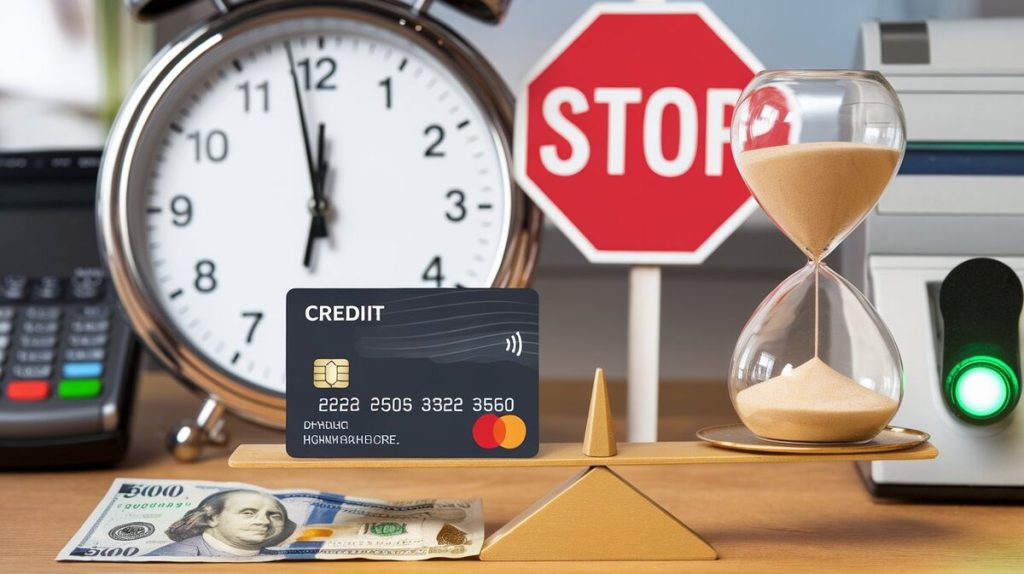Introduction to Chargebacks
A chargeback allows cardholders to dispute a transaction and request a refund from the issuing bank. Understanding chargeback time limits is critical for both merchants and cardholders to handle disputes efficiently.
Cardholders generally have 60 to 120 days to file a chargeback, depending on the card network and specific circumstances. Merchants, on the other hand, usually have 10 to 45 days to respond, depending on the network. This article will break down time limits for major card networks like Visa, Mastercard, American Express, and Discover.
General Chargeback Time Limits
Most chargebacks follow standard time limits, though these may vary depending on the card network and the dispute type. Below is an overview of general time limits:
| Card Network | Cardholder Filing Deadline | Merchant Response Deadline | Special Exceptions |
|---|---|---|---|
| Visa | 120 days | 20-30 days | 75 days for some authorization issues |
| Mastercard | 120 days | 45 days | 45 days for lost/stolen cards |
| American Express | 120 days | 20-30 days | Case-by-case for defective goods |
| Discover | Case-by-case (usually 120 days) | 30 days | Case-by-case |
Most networks allow cardholders 120 days to initiate a chargeback, but merchants typically have much shorter response times.
Chargeback Time Limits by Card Network
Visa Chargeback Time Limits
Visa offers cardholders 120 days from the transaction date to file a chargeback for most disputes. Some issues, like authorization errors, require disputes to be filed within 75 days.
For merchants, Visa requires a response within 20-30 days. For arbitration cases, the response time is 10 days. If merchants miss these deadlines, they automatically lose the dispute and may incur financial penalties.
Mastercard Chargeback Time Limits
Mastercard provides cardholders with a 120-day window to dispute most transactions, similar to Visa. However, specific cases, such as account number not on file, have a 45-day filing limit.
Merchants have a 45-day window to respond, which is slightly more lenient than Visa. Nonetheless, failing to meet the deadline means the chargeback is automatically ruled in favor of the cardholder.

American Express Chargeback Time Limits
American Express allows a 120-day period for cardholders to file a dispute. For defective goods, the 120 days start from the day the item is received.
Merchants usually have 20-30 days to respond. However, American Express handles disputes on a case-by-case basis, especially when goods are defective or services are not rendered as expected.
Discover Chargeback Time Limits
Discover operates differently from Visa and Mastercard, offering flexibility by evaluating disputes case-by-case. While a 120-day recommendation is often given to cardholders, there is no strict time limit. Merchants generally have 30 days to respond.
| Card Network | Cardholder Filing Deadline | Merchant Response Deadline |
|---|---|---|
| Discover | 120 days (recommended) | 30 days |
Exceptions and External Factors
Under certain conditions, such as natural disasters or other major disruptions, banks may extend chargeback deadlines. For example, during the COVID-19 pandemic, many networks extended deadlines for disputes.
In industries with higher risk, such as travel or subscription services, special chargeback considerations apply. Merchanto.org, an official partner of Visa and Mastercard, helps merchants in these sectors manage disputes and prevent chargebacks. Learn more at Merchanto.org.
Merchant Response Time and Key Factors
Merchants face shorter response deadlines, often between 10 to 45 days, depending on the network:
- Visa: 20-30 days for most disputes
- Mastercard: 45 days
- American Express: 20-30 days
- Discover: 30 days
The actual time merchants have to respond can shrink due to processing delays. It is critical for merchants to have systems in place to handle chargeback notifications quickly.
Key Factors for Merchant Deadlines:
- Internal processing: Delays in receiving notifications can shorten response time.
- Acquirer deadlines: Acquiring banks might use part of the response window for processing, reducing the time merchants have to act.
Merchants can stay ahead by setting up automatic notifications and monitoring disputed transactions frequently.
Consequences of Missing Deadlines
When a merchant misses the response deadline, the dispute is automatically ruled in the cardholder’s favor. This leads to financial losses, additional fees, and potential damage to the merchant’s reputation.
Consequences:
- Financial loss: Merchants lose the transaction value if they do not respond in time.
- Increased fees: Many networks charge between $20 to $100 per chargeback.
- Negative impact on reputation: A high number of unresolved chargebacks may affect a merchant’s standing with their payment processor.

Best Practices for Merchants
Merchants should prioritize quick response times and keep detailed records of all transactions. Setting up automated notifications and working with a chargeback management service can help ensure that disputes are handled effectively and within the allotted time.
Here are some practical tips for merchants:
- Automate notifications: Ensure you receive chargeback notices immediately.
- Monitor transactions: Regularly check for signs of dispute-prone transactions.
- Work with a partner: Partner with experts to stay on top of dispute resolutions.
Chargeback Prevention and Reduction
While understanding time limits is important, preventing chargebacks in the first place is even more valuable. Here are strategies to minimize the risk of chargebacks:
- Clear refund policies: A transparent and accessible refund policy can prevent chargebacks before they happen.
- Customer support: Make it easy for customers to reach out for help rather than filing a dispute.
- Detailed documentation: Keep thorough records of all transactions to provide evidence if a chargeback is filed.
Conclusion
Chargebacks are a necessary tool for consumer protection, but they can create challenges for merchants. Cardholders typically have up to 120 days to file a dispute, while merchants must respond within much shorter windows of 10 to 45 days, depending on the card network.
Staying informed about chargeback time limits and working with trusted partners can help merchants manage disputes and avoid unnecessary financial losses.



